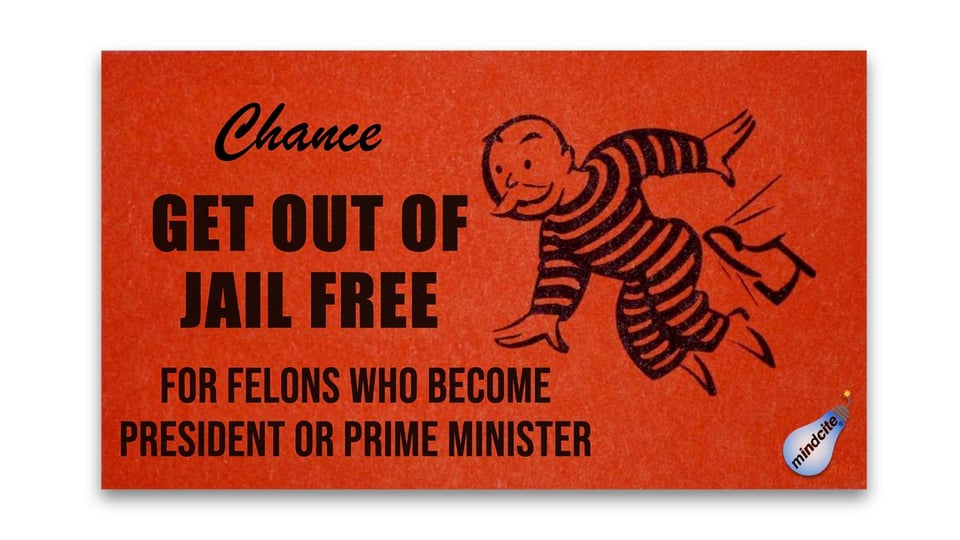Tuesday, September 24, 2024. Annette’s News Roundup.
Ah, North Carolina. What can we say.
Better yet, what can we do?
The RGA spent about $8m on TV ads since late July in North Carolina, per @AdImpact_Pol
— Marc Caputo (@MarcACaputo) September 23, 2024
Now it’s pulling out of the state following Robinson’s perverted/bigoted “Black Nazi” controversy, which has all but doomed his all-but-doomed campaign https://t.co/XQ13u01TFS
Let’s all echo Josh Stein, the Democratic Candidate for Governor in North Carolina - “These are not normal people.”
Let your words echo on all social media, ordinary emails and texts and conversations - “These are not normal people.”
Your voice may well make a difference.
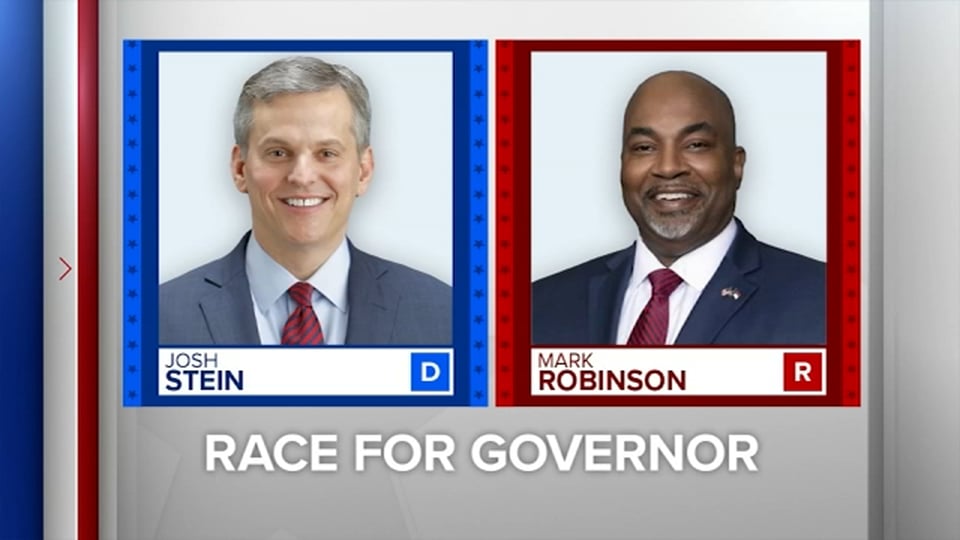
‘I Cannot Have That Man Be My Governor’: A Stark Race Roils a Crucial State.
Candidates strive to be bold contrasts to their opponents. By that measure, Lt. Gov. Mark Robinson has been running a spectacularly successful campaign for governor of North Carolina, and the past several days were absolutely phenomenal.
While his rival, Josh Stein, the state’s Democratic attorney general, was staying true to his low-key, lawyerly approach, Robinson, the Republican nominee, was angrily denying a report by CNN that between 2008 and 2012, he frequented a pornographic website where he called himself a “black NAZI,” praised slavery and boasted of various sexual proclivities and quirks.
After the lurid news broke Thursday, Stein’s aides refrained from gloating, releasing a platitudinous statement that he is “focused on winning” and intent on “a safer, stronger North Carolina for everyone.” That ceded the spotlight to Robinson, who was plenty busy. First he beat back rumors that Donald Trump’s allies — terrified that Robinson could cost Trump victory in a crucial swing state — were pressuring him to drop out of the contest. Then, on Sunday, he acknowledged the departure of at least four key campaign officials, who resigned amid the tumult. In short order, Colin Campbell of WUNC reported that the exodus went well beyond that and Robinson was down to “just three people working on his campaign.”
Robinson has blamed his latest travails on nefarious liberals and the evil news media, his pique reflecting his predicament: At this point, he’s probably doomed. Trump certainly seems to think so. Although he gushed early this year that Robinson was “better than Martin Luther King,” he didn’t so much as utter Robinson’s name on Saturday at a rally in Wilmington, N.C., where Robinson was conspicuously absent.
But while the campaign for North Carolina governor inhabits its own special category of bizarre, it also belongs fully and fascinatingly to this moment in time. It’s even, to some degree, the presidential contest in miniature, with each side driven as much by fear and loathing of the other as by any particular love for its candidate.
That dynamic was distilled in an uncharacteristically raw remark that Stein made to me about Robinson at the end of an hourlong lunch in Raleigh recently, before the latest revelations about Robinson.
“I cannot have that man be my governor,” Stein said.
I understand the feeling. I’m a North Carolina voter and I share it.
I don’t think Robinson will be our governor. That’s not just because of the past four days. I also believe, despite signs to the contrary, that there’s a version of MAGA extremism too cartoonish, too buffoonish and too plain ugly to pass muster in a patch of purple like ours, which has put more Democrats than Republicans in the governor’s mansion over the past few decades. Surely, we’ll choose Stein’s technocratic competence over Robinson’s madness and melodrama, and the divergent professionalism and discipline of these candidates’ campaigns will count for something.
And if elections in today’s broken America are simply won by the candidate who’s more difficult to caricature and demonize, well, Stein’s in clover, and he’s poised to prove that conventional beats unconventional when the latter comes in the furious, flamboyant form of Robinson. The lieutenant governor belongs to “the most radical slate of Republican nominees for statewide office in North Carolina history,” as Stein observed to me and two other journalists at a campaign event last month about an hour east of Raleigh.
“These are not normal people,” he said.
Then again, these are not normal times. I can’t breathe entirely easy. There’s deep red in North Carolina’s purple, as the Republican supermajority in our state legislature and Trump’s victories here in 2016 and 2020 make clear. If Trump wins North Carolina again, it’s not impossible that he and his many fervent supporters pull Robinson into the winner’s circle as well. And Stein is no political dynamo.
Stein, 58, hasn’t received nearly as much attention nationally as Robinson has, but then Robinson, 56, is low-hanging fruit loops.
Before he ran for lieutenant governor in 2020, elevated to sudden MAGA prominence by a viral pro-gun speech at a meeting of the Greensboro, N.C., City Council, . . . [Robinson] spent no small amount of time posting venomous missives and messianic videos on Facebook, rants that accused Jews of financially exploiting Blacks, Michelle Obama of being a man and women who have abortions of “killing a child because you weren’t responsible enough to keep your skirt down.” He struggled to find sturdy professional footing, working in furniture factories, filing for bankruptcy three times and neglecting his federal income taxes for years on end.
Some of those details and the full array of his bigoted remarks — misogynistic, Islamophobic, homophobic, you name it — didn’t come to light before that 2020 election. But even after many of them did, Republican voters in North Carolina went ahead this March and nominated Robinson to be their candidate for governor. For the state’s top education post, they chose Michele Morrow, who had urged Donald Trump to use the military to remain in power and has either called for or suggested the executions of President Biden, former President Barack Obama, Hillary Clinton, Bill Gates and Anthony Fauci, among others. By that yardstick , Representative Dan Bishop, the Republican nominee to succeed Stein as attorney general, is practically a Bolshevik. He merely promoted the lie that the 2020 presidential election was rigged, and he once compared gay-rights advocates to the Taliban.
Is it any wonder Democrats are anxious, no matter Robinson’s miserable lot right now? They rightly feel that how those far-right Republicans fare — a few of them may prevail, or at least come close — could send a message to everyone outside North Carolina, the country’s ninth most populous state, about how welcoming (or not) we are, and could affect our economic competitiveness.
“It would be devastating for Mark Robinson to be elected governor of North Carolina,” said the man currently in the job, Roy Cooper, a popular Democrat who is finishing his second term and is prevented from running for a third. Like Stein, Cooper is famously mild-mannered — but not on the subject of Stein’s opponent.
“Mark Robinson not only would take us backward, but to a place we’ve never been,” Cooper told me several weeks ago, referring to Robinson’s florid bigotry. “He has no business being anywhere near a governor’s office.”
Robinson would be the state’s first Black governor. He emphasizes not his race but his class — he grew up poor, spent part of his childhood in foster care and dropped out of college after one semester — and he hardly walks in lock step with racial justice advocates: He has harshly criticized the “so-called civil rights movement” as part of a broader pattern of “communists and socialists slowly pulling the rug out from underneath capitalism and free choice and the free market,” as he said in a 2018 podcast.
Stein would be the state’s first Jewish governor, and while he, too, doesn’t showcase the potential milestone of his election, even playing it down, he answered quickly and definitively when I asked him what he made of many progressives’ condemnation of Gov. Josh Shapiro of Pennsylvania, also Jewish, for supporting Israel with words little different from those spoken by Democratic politicians who aren’t Jewish and who drew less flack. “I was very distressed,” Stein said. “I felt like he was treated very unfairly because of his religion.”
Might Stein’s Jewish identity — and his carefully articulated, measured solidarity with Israel — actually be working in his favor? Chris Cooper, a professor of political science at Western Carolina University, thinks so, explaining that it distinguishes Stein from many figures on the left who rail against Israel. Professor Cooper (no relation to Roy) said that as a result, it moderates Stein’s image, possibly attracting swing voters offended by the antisemitic tirades and minimizations of the Holocaust in Robinson’s past. Professor Cooper recalled recently driving past “a Trump flag and an Israeli flag in the same yard.” There resides a potential ticket splitter: Republican for president, Democrat for governor.
But what intrigues Professor Cooper most about the governor’s race is that “you could not create two more different candidates” to square off against each other. “This is the starkest contrast imaginable, and it’s all taking place in a state on the razor’s edge between red and blue,” he said. What’s more, each candidate contradicts his party’s paradigm for victory in statewide races. Robinson represented a risk even before he devolved into a disaster.
“Republicans have won with don’t-rock-the-boat candidates,” said Mac McCorkle, a veteran Democratic strategist who teaches with me at Duke University’s Sanford School of Public Policy. He noted that before Robinson, Republican nominees for governor — and, to some extent, for the U.S. Senate — were often relatively button-down, managerial types with demeanors that reassured the business community and didn’t spook unaffiliated voters, who constitute a third of the North Carolina electorate. (The rest is almost evenly divided between registered Republicans and registered Democrats.)
But Robinson is all anti-establishment provocation or pugnacity. He exalts firearms as necessary insurance against an overzealous government. He shares crude social-media posts, like one suggesting that the attack on Paul Pelosi by a man who broke into his and Nancy’s San Francisco home was really a sexual tryst gone wrong. He taunts transgender people, denies climate change and sermonizes censoriously from the pulpits of conservative Christian churches — all at a thunderous volume. That’s not just rocking the boat. That’s capsizing it, crashing it into a reef and then cackling as the wreckage sinks into the murk.
Robinson stands out just as vividly for his inexperience. Lieutenant governor is a largely ceremonial post — Governor Cooper told me that he infrequently crosses paths with Robinson — and as a recent article in The Atlantic by David A. Graham revealed, Robinson has been derelict even in that undemanding duty.
Stein isn’t as pronounced a deviation from the Democratic script, but he’s unlike Governor Cooper, whose folksy air and rural background have made it difficult for Republicans to label him a conventional liberal. McCorkle said that the governor epitomizes a “country to city, small town to university” type and arc that have worked well for North Carolina Democrats. Stein, in contrast, grew up and went to high school in Chapel Hill, a cosmopolitan college town often derided by Republicans as some godless Marxist commune. Then he attended Dartmouth for college and Harvard for law school. He gives off a faintly preppy glimmer and lacks Roy Cooper’s overt warmth. As Professor Cooper put it, “He’s just not the kind of guy who makes you want to fly a flag outside your house.”
Stein told me that from an early age, he felt a strong pull toward public service, an interest in line with his upbringing. His father, a prominent civil rights lawyer, presided over the state’s first integrated law firm, whose offices were once firebombed in protest of its fight for racial justice. His mother did research and policy work related to maternal and child health. His older brother is a policy adviser for the federal Department of Housing and Urban Development and his older sister is a retired social worker who counseled death-row prisoners. Stein said that when he first took his wife-to-be, Anna, on a vacation with his parents and siblings, she marveled, “Oh, my God, you all talk about politics and policy more than any people I’ve ever met.”
I asked him how he and Anna, also a lawyer, began dating, and his answer was like some comedy sketch spoofing his staid image. “We actually met in the state crime lab,” he said, flashing back to 1993, when they were interns in the North Carolina Department of Justice. Days later, he said, she showed up at his office door and invited him to watch a bit of a murder trial with her. It’s not exactly “Sleepless in Seattle.”
“We will often kid each other,” Stein said. “She’ll be like, ‘Why aren’t you a chef?’ And I’m like, ‘Why aren’t you an artist?’ Because we’re both lawyers and we’re both very rational.”
For several years in his early 30s, Stein worked for John Edwards, the former Democratic senator from North Carolina, helping to manage Edwards’s campaign for the Senate in 1998 and then serving as a deputy chief of staff in Edwards’s office on Capitol Hill. But he and Anna weren’t fond of Washington, D.C., he said, so they hurried back to North Carolina, where he took a job in the state’s consumer protection division, followed by eight years in the State Senate, until his election to the first of his two terms as attorney general in 2016.
He has performed impressively in that role, often prioritizing issues — the opioid scourge, vaping, the state’s backlog of untested rape kits — that transcend partisan divisions. His admirers cite his intensity. “You can’t underestimate how powerful his resolve is,” said Robert Crabill, a friend of Stein’s since their days together at Chapel Hill High. State Representative Robert Reives, the House Democratic minority leader, told me: “His work ethic is unreal.”
He has raised much greater sums of money and released more and better television ads than Robinson has, beginning with an early June blitz of commercials that hammered Robinson for his past condemnations of abortion, which Robinson said he wanted to outlaw in all cases with no exceptions. Only recently has Robinson revised his position to one of support for the state’s current law, which forbids the procedure after 12 weeks of pregnancy.
One of Stein’s ads spotlighted Robinson’s “keep your skirt down” repugnance, and within a month of its frequent airing, Stein began pulling away from Robinson in polls that had previously shown them neck-and-neck. Strategists in both parties say that it could prove to be one of the rare political ads that irrevocably alter the trajectory of a contest. If so, it will also validate Democrats’ beliefs that the repeal of Roe v. Wade has turned abortion rights into one of their most potent weapons.
But Stein remains vulnerable. Paul Shumaker, a veteran Republican strategist in North Carolina, told me that as recently as late August, most North Carolina voters didn’t have any strong impression of Stein, who has spent as much energy sounding the alarm about Robinson as singing his own praises. In his campaign announcement video early last year, he talked about his father’s bravery and legacy and about Robinson’s hatefulness before saying much about himself.
Some of the voters at that campaign event of his east of Raleigh didn’t have much to say about him, either. I asked a half-dozen of them why they were there; I heard more about the villainy of Robinson than about the virtues of Stein, with whom they didn’t seem to be deeply familiar, despite his many years in office.
Recent surveys from before the “black NAZI” bombshell showed him ahead of Robinson by — according to RealClearPolling — an average of more than nine percentage points. But Jonathan Felts, a Republican consultant advising the Robinson campaign, noted that polling in statewide races in North Carolina often overestimates Democratic candidates’ strength. Four years ago, polls put Roy Cooper 11 points ahead of his Republican opponent, but he won by only 4.5 points.
Felts acknowledged the potential damage of the past several days. “I think it fair to characterize the allegations made by CNN as not helpful,” he told me in a text message on Friday, when he also denied any panic in the Trumpiverse: “Trump’s campaign is run by smart people who know ‘reverse coattails’ is a fiction.” In that message and in a previous telephone conversation, he insisted that Stein was the candidate out of sync with most North Carolinians, who, he said, are “tired of the political class” and of politicians who give off “the vibe that their biggest decision every day is what shade they want their khaki pants to be.” He told me that the Robinson operation is on its way to shrinking the advertising disparity between the two campaigns and will take advantage of many voters’ fuzzy sense of Stein to define him “as the left-wing radical he is.”
That’ll be some sorcery. Stein doesn’t emit the faintest whiff of radicalism. His style on the stump is steady, reasonable, crisp. When I asked him what his greatest ambition and priority as governor would be, he said it was to improve public education, chiefly by raising teacher pay and expanding access to community college. That’s hugely important — and not remotely revolutionary.
As his wounded opponent thrashes in the foreground, Stein has perfected the art of receding just enough into the background. And while he may not inspire me or others to march to the barricades, he also doesn’t have us bolting our doors. Robinson does. Trump, too. May those two and the Republican Party be schooled soon on the risk and folly of that, so that North Carolina — and America — can pivot to something better. (Frank Bruni. Op-ed. New York Times).
Remember what Josh Stein stated, “Trump has no path to the White House without North Carolina.”
Think about what you can do to help.
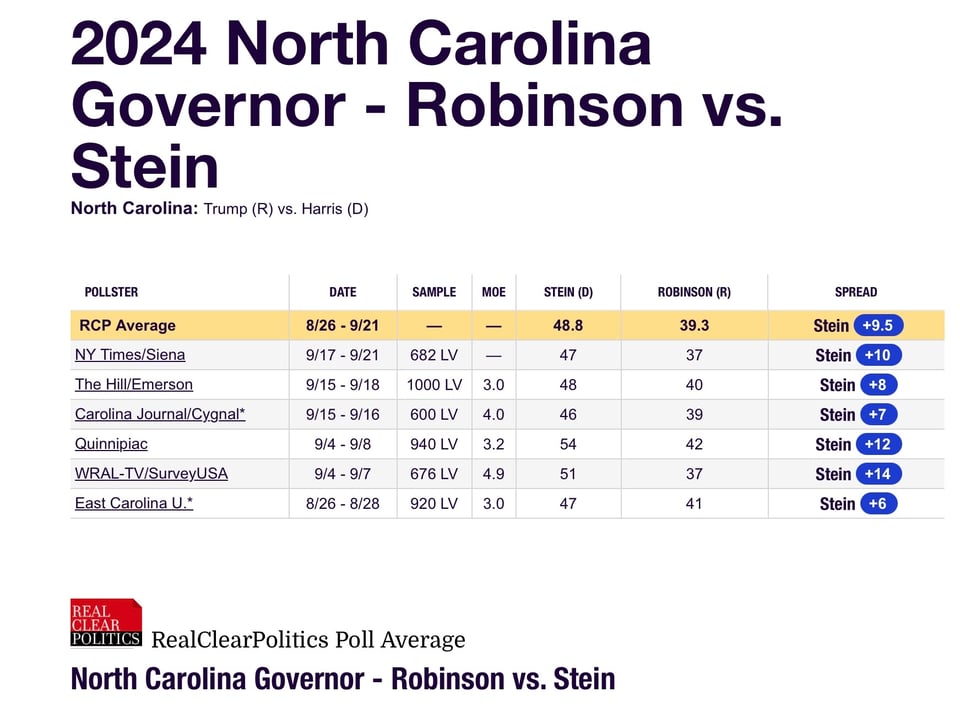
Think about donating to Josh Stein’s race. TEXT Josh
TO 40503.
Nebraska. A Patriot says no.
MAGA tried to change the state’s way of counting electoral votes but a patriot said no.
This dangerous situation is frightening, and again shows how important an individual can be.
Remember this. Worry less Do More. Empower yourself. DO SOMETHING.
Key Nebraska Republican Rejects Trump’s Push to Shake Up Electoral Map.

Mike McDonnell, a state senator, said he would not support an effort to change the state’s electoral system to winner take all, an outcome that could have cost Kamala Harris an electoral vote.
The Nebraska state senator who Republicans hoped would help ease former President Donald J. Trump’s path to the White House by agreeing to change how the state allocates its Electoral College votes said on Monday that he would not do so, ending a brief but intense lobbying effort from allies of Mr. Trump and Vice President Kamala Harris.
The state legislator, Mike McDonnell, a Democrat turned Republican from Omaha, said that he would not agree to change Nebraska’s 32-year tradition of awarding three of the state’s five electoral votes by congressional district to a winner-take-all system based on the statewide popular vote, bucking calls from Nebraska’s governor and its congressional delegation to help Mr. Trump.
“In recent weeks, a conversation around whether to change how we allocate our Electoral College votes has returned to the forefront,” Mr. McDonnell said in a statement on Monday. “I respect the desire of some of my colleagues to have this discussion, and I have taken time to listen carefully to Nebraskans and national leaders on both sides of the issue. After deep consideration, it is clear to me that right now, 43 days from Election Day, is not the moment to make this change.”
Mr. McDonnell said he had told the state’s Republican governor, Jim Pillen, that “I will not change my long-held position and will oppose any attempted changes to our Electoral College system before the 2024 election.” He said he had proposed seeking a constitutional amendment next year, which would require a statewide vote to change how Nebraska allocates its electoral votes.
The Nebraska Examiner earlier reported Mr. McDonnell’s statement.
Nebraska is a reliably red state, and, had the change taken effect, it would have affected only the electoral vote awarded from the congressional district that includes Omaha and its suburbs, which has gone to Democrats twice since the state established its by-district allocation system for the 1992 election. Barack Obama won it in 2008, and President Biden took it in 2020. In this year’s presidential election, both of the leading campaigns see situations in which a single electoral vote could prove decisive.
Mr. Pillen had said he would convene the state’s 49 legislators in a special session to change the state law once he had commitments from enough of them to overcome a promised filibuster from Nebraska Democrats. In the past week, when Mr. McDonnell, a former firefighter who is the president of the Omaha Federation of Labor, emerged as the key vote on the issue, he found himself being pressured by high-level allies of the Harris and Trump campaigns.
Last week, Senator Lindsey Graham of South Carolina traveled to Lincoln, the Nebraska state capital, to lobby lawmakers to change their electoral vote allocation system to winner take all. After that, the five members of the state’s congressional delegation, who are all Republicans, signed a joint letter endorsing the switch.
“Nebraska has a long and proud tradition of independence, and our electoral system reflects that by ensuring that the outcome of our elections truly represents the will of the people without interference,” said Jane Kleeb, the chairwoman of the Nebraska Democratic Party. “Senator McDonnell is standing strong against tremendous pressure from out-of-state interests to protect Nebraskans’ voice in our democracy. In this election and those to come, Nebraskans will continue to lead the way by electing leaders at every level who stand up for the people and respect our spirit of independence.”
Mr. McDonnell, who is barred by term limits from seeking re-election to the Nebraska Legislature, is widely seen as eyeing a run for mayor of Omaha against the incumbent, Jean Stothert, a Republican who said on Friday that she had “always” preferred a winner-take-all allocation of Nebraska’s electoral votes.
Changing the law would require agreement from 33 of the 49 state senators in Nebraska’s unicameral Legislature. Sixteen seats are held by Democrats, all of whom are opposed to the switch. Up until now, Mr. McDonnell and two other Republicans had not committed to the change. The other two Republicans have been seen by officials in both parties in Nebraska as all but certain to follow Mr. McDonnell’s lead.
The prospect of winning just one of Nebraska’s electoral votes is tantalizing to the two presidential campaigns.
If all five of Nebraska’s electoral votes are awarded to Mr. Trump and Ms. Harris carries Michigan, Pennsylvania, Wisconsin and all of the other states Mr. Biden won in 2020 except Arizona, Georgia and Nevada, the vice president and Mr. Trump would each have 269 electoral votes, a tie that would be broken by a vote of state delegations in the House of Representatives. Republicans hold an advantage there and would most likely award the White House to Mr. Trump.
But under the current rules, if Ms. Harris wins the Omaha district along with the northern battleground states, she would win the White House regardless of how the Sun Belt states vote. The Harris campaign has held a campaign event in Omaha featuring her running mate, Gov. Tim Walz of Minnesota, who is a Nebraska native. (New York Times)
Trump attacks Mike McDonnell. No surprise.
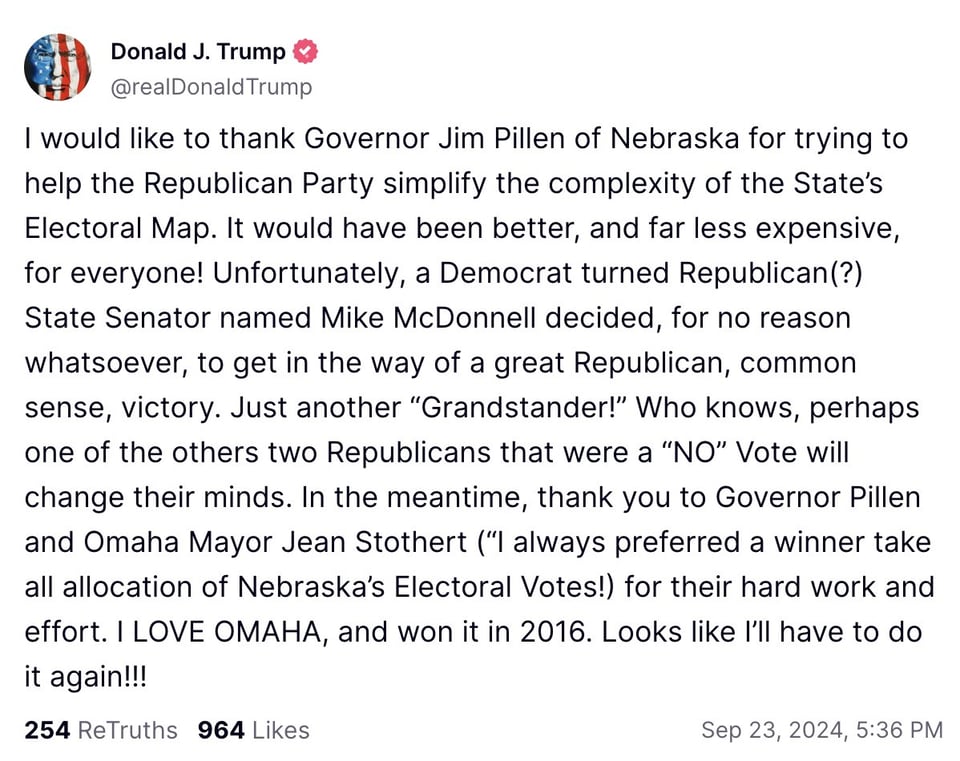
Independent candidate, Dan Osborn, can win A Senate Seat in Nebraska.
That would relieve the nation of the dreadful two term MAGA Deb Fischer and move us one seat closer to keeping the Senate Blue.
I want to thank Julia Louis-Dreyfus for bringing attention to the fact that I am now tied with Republican Deb Fischer in the Nebraska senate race. Take a minute to watch this.
— Dan Osborn, Independent for Senate (@OsbornForSenate) September 20, 2024
Together, we'll win this race.🧵pic.twitter.com/3siXSGoMBh
You may not have realized it, but deep RED Nebraska’s senate seat is now in play. Don Osborn, a retired Navy man & Union man is only down 2 points to incumbent MAGA Sen Deb Fisher. If he wins he would caucus with Dems. Please Give @OsbornForSenate a look!https://t.co/GiwB7YIJmi
— Leslie Resists -- #2TheBarricades (@Resisted2TheEnd) September 23, 2024
Watch.👇
Today I’m announcing my INDEPENDENT campaign for U.S. Senate.
— Dan Osborn, Independent for Senate (@OsbornForSenate) September 21, 2023
I’m a steamfitter and an industrial mechanic, and a veteran of the Navy and the Nebraska Army National Guard.
I led the Kellogg’s strike in 2021, when we preserved 500 middle-class Nebraskan jobs. pic.twitter.com/kDsrWCpdup
Like Nebraska, Maine also doesn’t have winner-take-all electoral votes.
Maine has 4 electoral votes. Nebraska has 5.
In 2020, Trump won one electoral vote from Maine’s rural 2nd Congressional District and is heavily favored to do so again, while Joe Biden won one from Nebraska’s Omaha-based 2nd Congressional District. Despite MAGA, that vote will belong to Kamala in 2024.
MAGA’s strategy was end RED Nebraska’s way of counting electoral votes after it was too late for Democrats to end BLUE Maine’s way of counting as retaliation.
This happened too. 👇
BREAKING
— Republicans against Trump (@RpsAgainstTrump) September 23, 2024
Three former chairs of the Maine Republican party endorsed Vice President Harris:
“As former chairs of the Maine Republican Party, we enthusiastically endorse Kamala Harris for president of the United States…Each of us has had the honor of traveling the state of… pic.twitter.com/RvpoqQpQh9
Pennsylvania.
Trump stands with Putin, not Ukraine. The Polish Community in Pennsylvania understands what that means for Poland.
Touch to watch the Vice President at the Debate. 👇
Vice President Harris: Why don't you tell the 800,000 Polish Americans right here in Pennsylvania how quickly you would give up for the sake of favor, and what you think is a friendship with a dictator who would eat you for lunch? pic.twitter.com/TzTDTh7i0n
— Kamala HQ (@KamalaHQ) September 11, 2024
BREAKING: Kamala Harris has just received the endorsement of the Polish community in Pennsylvania. There are more than 800,000 Polish Pennsylvanians, so this is a huge endorsement.
— Kamala’s Wins (@harris_wins) September 23, 2024
The Vice President challenged Trump to a second debate.
Touch to watch. 👇
Vice President Harris: I would like another debate. So I'm hoping Trump will agree to that. We have a lot more to discuss pic.twitter.com/G6fPL4s1TW
— Republicans against Trump (@RpsAgainstTrump) September 22, 2024
Trump refused.
Touch to watch. 👇
#WATCH!!!!! Trump says he is refusing to do another debate: “I’d love to, but it’s too late”
— Authentic voice (@Authenticvoice6) September 21, 2024
Authentic voice pic.twitter.com/Ct2obGRkqo
Harris Agrees to a Second Debate, but Trump Declines.

Vice President Kamala Harris said on Saturday that she had accepted an invitation from CNN to participate in a second presidential debate next month, putting pressure on former President Donald J. Trump to join her for a rematch.
Ms. Harris was widely seen to have won her first debate with Mr. Trump, according to polling, and her campaign has been seeking a second debate almost since the first one ended. But Mr. Trump has repeatedly ruled out a second face-off with the vice president, and on Saturday he said that it was “too late” for a second debate because early voting had begun in a few states.
In a social media post on Saturday, Ms. Harris said she had “gladly” accepted CNN’s invitation for an Oct. 23 face-off, adding that she hoped Mr. Trump would join her.
The post was part of a public effort by the Harris campaign that also included statements announcing her decision issued by Brian Fallon, a campaign spokesman, and Jennifer O’Malley Dillon, the campaign chair.
“The American people deserve another opportunity to see Vice President Kamala Harris and Donald Trump debate before they cast their ballots,” Ms. O’Malley Dillon said in her statement. “It would be unprecedented in modern history for there to just be one general election debate.”
At a rally in Wilmington, N.C., on Saturday, Mr. Trump once again rejected the idea of another debate, insisting that he won his debate against Ms. Harris and blaming timing. “The problem with another debate is that it’s just too late,” he said. “Voting has already started.”
But Mr. Trump had previously pushed for a debate on Sept. 25 on NBC, after the start of mail and early voting in several states. And his final debate during his 2020 campaign was on Oct. 22.
Some of Mr. Trump’s advisers want him to debate again, or at least want him to consider it, according to two people familiar with their thinking. But Mr. Trump has told people privately that he does not want to do so, they said, even as he has solicited other opinions.
“When a prizefighter loses a fight, the first words out of his mouth are, ‘I WANT A REMATCH,’” Mr. Trump wrote on his social media platform, Truth Social, two days after the first debate, which he claimed to have won.
Mr. Trump squared off with President Biden in a debate in June in Atlanta, where Mr. Biden gave a halting performance that stunned Democrats and ultimately led him to leave the race less than a month later.
At the first debate between Ms. Harris and Mr. Trump, she appeared to get under his skin, and he delivered a fact-challenged performance that was poorly received by many viewers.
Ms. Harris received better reviews after the debate, with 67 percent of likely voters saying she did well compared with 40 percent for Mr. Trump, according to polling from The New York Times, The Philadelphia Inquirer and Siena College. But the face-off did not significantly alter the trajectory of the race, which appears essentially tied.
On Saturday, CNN urged Mr. Trump to join Ms. Harris for a second debate, saying that it would help inform a divided electorate.
“Both Vice President Harris and former President Trump received an invitation to participate in a CNN debate this fall as we believe the American people would benefit from a second debate,” CNN said in a statement, adding, “We look forward to receiving a response from both campaigns so the American public can hear more from these candidates.” (New York Times).
42 days to go. It was a big weekend and it’s going to be a big week. Virginia, Minnesota and South Dakota voters are already voting.
Help Register voters. Write postcards. Make calls. Knock on doors. Talk to folks.
If not now, when. Don’t wake up on November 6 thinking you should have done more.
Donate if you can.
My links for donations that can make a difference.
Kamala Harris Victory Fund.
https://app.oath.vote/donate?p=niemtzow-harris&ref=PPIAM0N1
Lauren Mucarsel-Powell for Senate (Florida)
https://app.oath.vote/donate?p=niemtzow-murcarsel-powell&ref=PPIAM0N1
Elissa Slotkin, for Senate (Michigan)
https://app.oath.vote/donate?p=niemtzow-slotkin&ref=PPIAM0N1
Colin Allred, for Senate (Texas)
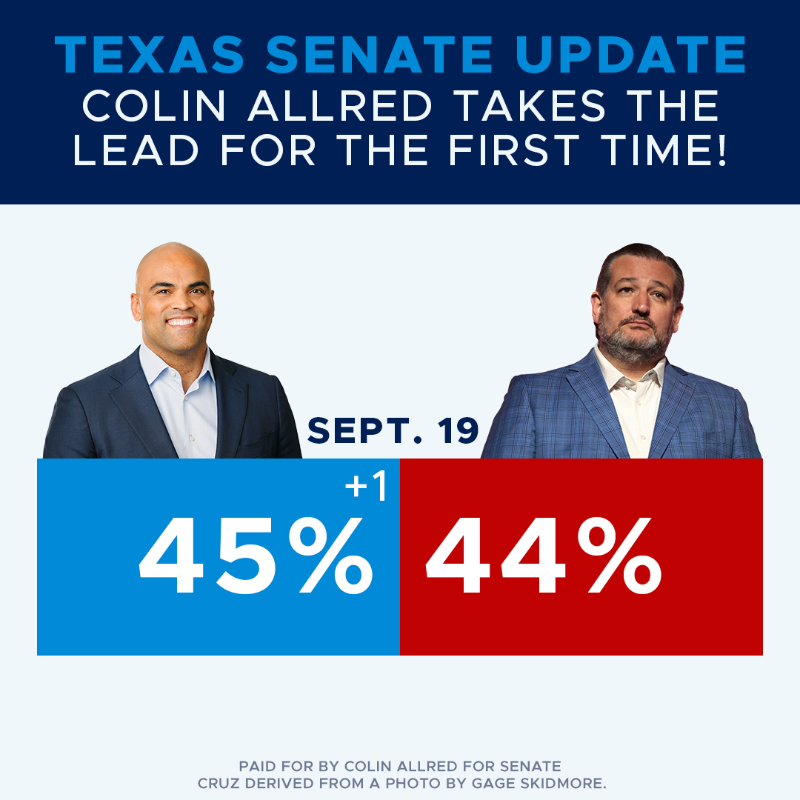
https://app.oath.vote/donate?p=niemtzow-allred&ref=PPIAM0N1
Flip the House.
New York let George Santos win, but in a Special Election, we replaced him with Democratic Congressman Tom Suozzi.
Now we have 4 more chances, 3 in the Hudson Valley, 1 in Long Island, to elect Democratic Congresspeople and to right New York’s wrong.
There are 3 Hudson Valley seats with strong, amazing Democratic Congressional Candidates plus a seat on Long Island which we can win because the Democratic woman running has won before.
Getting out the votes to win these seats were a large part of the reason Trump held a rally in Nassau County NY last week.
If you can even give $20 to these 4 candidates, please do it. Republican redistricting and Democratic inattention gave us Santos and a red House. We can undo that damage completely and make the House blue again.
The link below 👇 will split your donation among all 4 terrific candidates.
https://app.oath.vote/donate?p=an-nyfh&ref=PPIAM0N1
When we fight, we win.
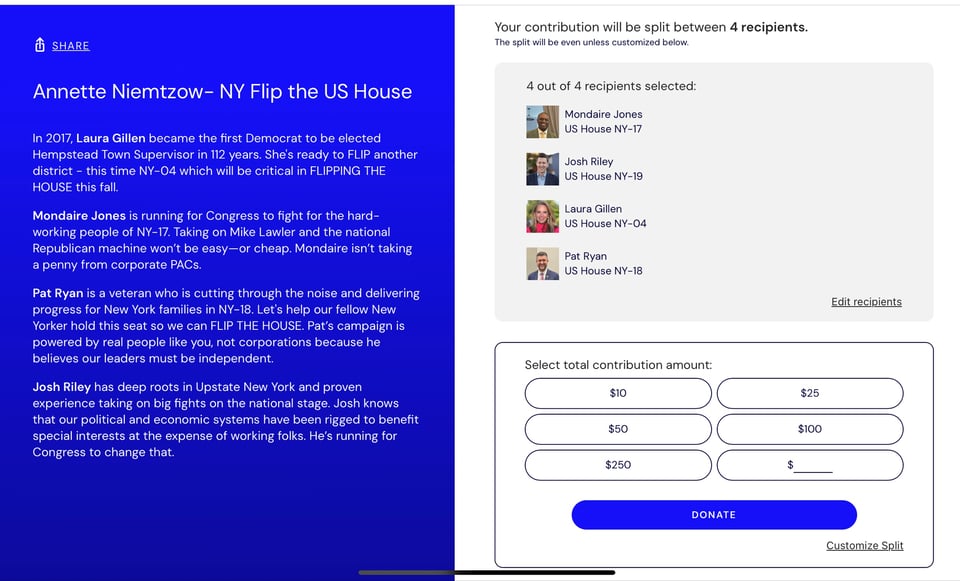
Your daily reminder.
Trump is a convicted felon.
On May 30th, he was found guilty on 34 felony counts by the unanimous vote of 12 ordinary citizens.
The Convicted Felon Donald J. Trump was scheduled to be sentenced on July 11th and September 18th. He will now be sentenced on November 26.
Don’t let Trump get this card. 👇
